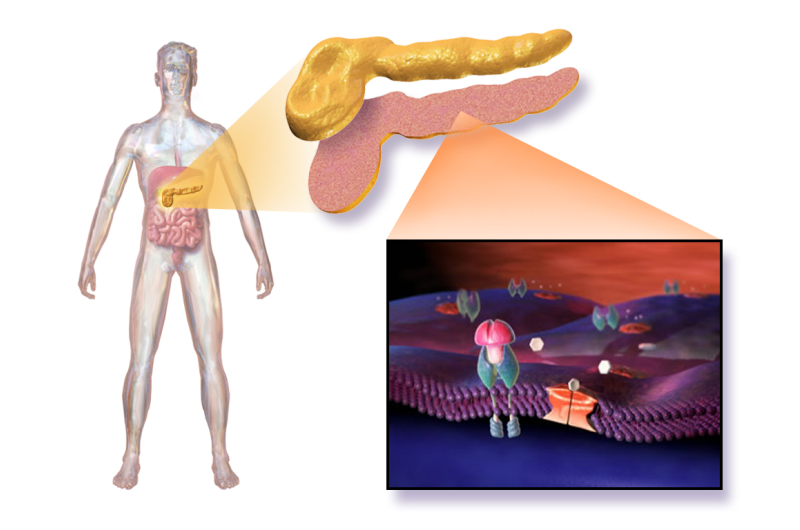Short anti-rejection therapy protects transplants in diabetic animals

Transplanted pancreatic islets in diabetic animals can survive for a long period of time if the animals are treated with short anti-rejection therapy around the time of the transplant. This has been shown by researchers at Karolinska Institutet, Sweden, and the Diabetes Research Institute, University of Miami Miller School of Medicine, USA, in a new study published in Diabetologia (the journal of the European Association for the Study of Diabetes [EASD]). The results may have a significant impact on clinical islet transplantation in the treatment of type 1 diabetes.
Transplantation of pancreatic islets with their insulin-secreting cells is a promising therapy in type 1 diabetes. However, one complication is that anti-rejection therapy, in the form of generalised immune suppression, is required to ensure the survival and function of the transplanted islets by preventing the immune system from attacking the transplants.
It is well known that extended use of generalised immune suppression might have serious side effects that harm the transplanted patient. Moreover, immune attack against the transplanted islets can still occur despite continued immune suppression. Therefore, the transplantation field has been looking for new ways to ensure the long-term survival and function of transplanted islets with little or even no immune suppression.
This new study demonstrates the potential for achieving long-term survival and function of transplanted pancreatic islets with short-term anti-rejection therapy around the time of the transplant. In transplanted mice and monkeys, this strategy resulted in immune tolerance that enabled survival of the transplanted islets long after the anti-rejection treatment was stopped.
"These findings support the establishment of immune tolerance towards the transplanted islets and thereby their long-term protection from an immune attack in the transplanted patient after stopping the use of anti-rejection therapy," says first author Dr. Midhat H Abdulreda at the Diabetes Research Institute.
This new way of achieving immune tolerance might minimise the need for life-long immune suppression, which raises hope for an effective treatment of type 1 diabetes with fewer side effects.
"If these findings are repeated in humans, this approach may serve as a game changer and positively impact on the success of islet transplantation for future treatment of type 1 diabetes," says senior author Professor Per-Olof Berggren at the Rolf Luft Research Center for Diabetes and Endocrinology at Karolinska Institutet.
The research was supported by funds from the Diabetes Research Institute Foundation (DRIF) and the Diabetes Wellness Foundation and by grants from the Stanley J. Glaser Foundation Research Award, the NIH/NIDDK/NIAID, the Swedish Diabetes Association Fund, the Swedish Research Council, Novo Nordisk Foundation, the Family Erling-Persson Foundation, the Strategic Research Program in Diabetes at Karolinska Institutet, the ERC-2013-AdG 338936-BetaImage, the Knut and Alice Wallenberg Foundation, Skandia Insurance Company Ltd, the Diabetes and Wellness Foundation, the Berth von Kantzow Foundation, and the Stichting af Jochnick Foundation.
Per-Olof Berggren is cofounder and CEO of Biocrine, an unlisted biotech company that is using the approach of cell transplant in the anterior chamber of the eye as a research tool. Midhat H Abdulreda is a consultant for the same company. More information about the technique can be found in the scientific article.
More information: Midhat H. Abdulreda et al, Operational immune tolerance towards transplanted allogeneic pancreatic islets in mice and a non-human primate, Diabetologia (2019). DOI: 10.1007/s00125-019-4814-4
















